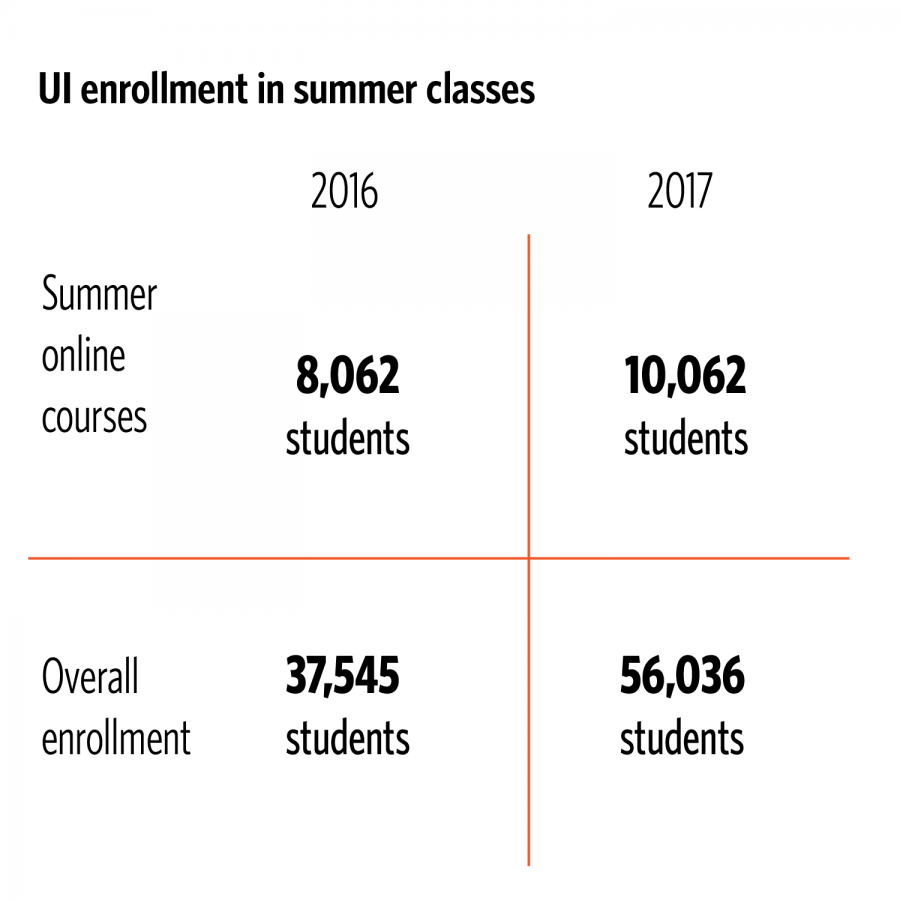Summer courses help ease academic burden
Source: Adam D. Fein
Apr 2, 2018
Students who wish to take summer courses at the University over the break must select available classes over the next month, as registration begins Monday.
Adam Fein, assistant provost for Educational Innovation, said in an email that each department picks which courses they want to offer over the summer based on a variety of factors, some of which include instructor availability and student demand.
“Summer online courses have been popular as they offer students opportunities to register for gen-ed and high-demand courses that they may not be able to access during the fall and spring semesters,” Fein said.
Fein said summer classes assist students in staying on track to graduate on time.
The University has been offering courses online since 1995, and currently offers over 40 online graduate degree programs for undergraduates, she said.
Get The Daily Illini in your inbox!
Fein said the University had 10,062 enrollments in summer online courses in 2017, which increased by 16 percent from 2016. Overall, in the 2017 academic year, the campus had 56,036 students, which was up 33 percent from the 2016 academic year.
For undergraduates, each online course is $409 per credit hour during the summer sessions.
“Summer online courses have the same rigorous requirements as their face-to-face counterparts,” Fein said.
Geralyn Holley, professor in Media, has taught a summer online course for internships in the past, but will be teaching a crisis communications course this summer.
“Given the internship class wasn’t as involved as most other classes, say like biology or chemistry or something like that, it wasn’t much of a burden, timewise, for students,” Holley said.
Madison Murphy, junior in AHS, said she took General Chemistry II, or CHEM 104, online during the summer.
“I think that it was a little bit harder than taking it for a full semester because it was so much difficult material crammed into a small span of time,” Murphy said.
Murphy said there were assignments due almost every day of the week, so it was often difficult to keep up with coursework along with holding a summer job.
Murphy said communication is the biggest area needed for improvement during summer classes.
“If a professor is going to teach an online class, they really need to be responsive to emails or looking at the Q&A board,” she said. “There were times where I wouldn’t understand a concept and couldn’t get in contact with the professor, which in turn made me fall behind on the material.”
Murphy said she is taking another class online this summer to help lessen the courseload for her senior year.
Holley said the University should definitely continue to offer summer classes, especially online.
“It’s a convenient and often less hurried way for students to get electives out of the way,” she said.






